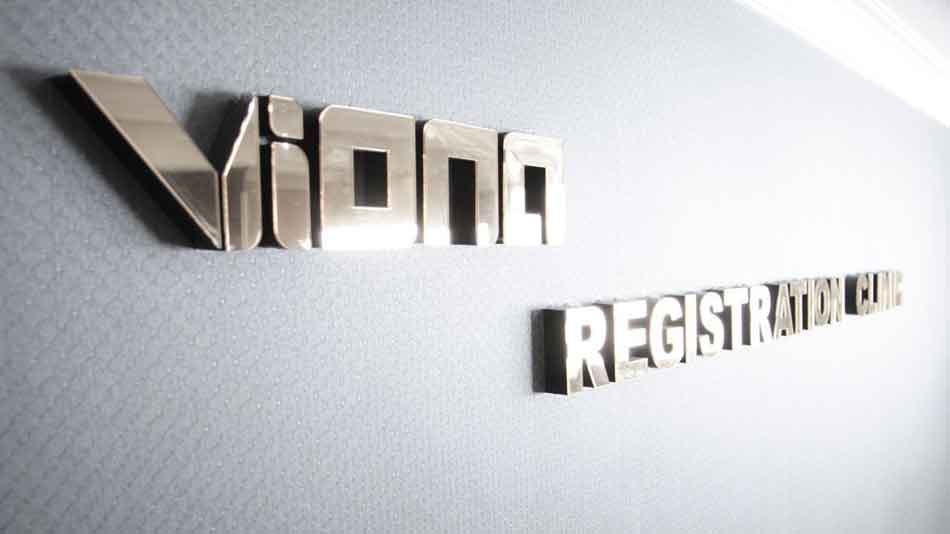Meaning of Free Zone and the advantages
Free Zone is a port and non-port zone, and according to the Article 13 of the Free Industrial-Commercial Zone of the Islamic Republic of Iran, approved on 7/6/1372, the legal entities and individuals who have different kinds of economic activities in these free zones, are exempted from tax on income and assets for a period of 15 years. Free zones are subject to the current regulations of the foreign country and include benefits such as tax exemptions, exemption of profits and customs duties, and the absence of currency and administrative extra operations, as well as facilitating and expediting import and export processes by attracting foreign investments and transferring technology and land development of the main land.
The United Nations (UNERO) definition of free zones is considered as a motive to encourage industrial exports. There is also a new catchment of free zones known as the free export processing zone; a special industrial zone outside the customs border whose products are called export orientation and currency. The philosophy of this term can be understood as an interpretation of the import strategy and export development strategy.
Advantages of Free Zones Enterprise Registration:
- Tax exemption (20 years) for any economic activity
- 100% foreign ownership
- Entry of foreign nationals without a visa
- Legal protection of foreign investors
- No restrictions on the transfer of foreign currency from other Iranian free zones to other countries.
- Broad banking and insurance services (both private and public)
- Flexible banking and financial services
- Performing currency transactions
- Exemption from customs duties for imports of raw mateIRR for industrial workshops
- Activities of Oil and Petrochemicals Exchange and International Stock Exchange
- Easy registration of companies and institutes of industry, cultural institutions and intellectual property
- Easy regulations for the entry of authorized goods
- Simple formalities for re-export and transit of goods
- Possibility of export of Kish manufactured goods to other mainland
- The suitable rates for energy consumption
- Full freedom of entry and exit of capital and profits from economic activities
- Exporting products abroad without paying customs duties and ports
- Simple working conditions and access to skilled labor
What is free zone?
Iran has eight free trade and industrial zones as follows:
- Kish Free Zone
- Qeshm Free Zone
- Chabahar Free Zone
- Arvand Free Zone
- Free Zone of Anzali Port
- Salafchegan Free Zone
- Maku Free Zone
- Aras Free Zone.
All of the free zones listed above enjoy 15 years of tax exemptions.
Some of the most important differences in the free zones are the followings:
There are 15 years free taxes exemptions in the free zones, and in special economic zones, tax deductions are in accordance with domestic regulations. Retail sales of goods are only possible for foreign nationals in special economic zones.
But in free zones, retail sales are possible for both foreign and domestic citizens. Visa regulations for foreign nationals of special areas are based on domestic standards, but in free zones visas are granted on entry border.
Labor regulations and social insurance Employment of foreigners in free zones are subject to certain regulations of the regions. Access to special economic zones is subject to domestic regulations.
Investment incentives for business and corporate registration
1. Registration of the company
- All types of companies and non-commercial enterprises mentioned in the Commercial Code and other laws of Iran can be registered without the administrative bureaucracy of the region. Advantages of company registration in free zones comparing to other regions are as follows:
- The ease of name and subject determination: Identifying the names of legal entities takes a few minutes. Further, much less strict is applied on the choice of subject matter in accordance with the rules of free and special zones and Article 5 of the Law on the management of free trade- Industrial zones, than that of the mainland.
- Removal of official bureaucracy and ease of registration process: Applicants can register their companies with the guidance and advice of the Registry office of companies within one to one and a half days, which is a significant advantage comparing to the mainland and even other free zones and such duration of the registration process is competing with other free regions of the world and advanced countries.
- Registration of the company with the shareholders of the foreign investor: According to Articles 2 and 5 of the Investment Regulation, the free trade-industrial zones do not have any restrictions on the registration of legal persons of nationality, in such a way that foreign investors can invest in economic activities in the region to their desired extent.
- The existence of virtual offices for the use of investors: legal entities without a legal residence can use the offices for 3 months, or mailbox for 6 months.
2. Order Registration
Along with the development of e-commerce and attraction of traders and investors of the Free Zone Organization in cooperation with the Ministry of Commerce and the Export Development Center of Iran on 27/3/89 a goods registration system is organized, which makes it easy for traders and investors to register orders. It has been welcomed by many businessmen after a short time.
3. Supporting specific cases
The Free Zone Organization, while firmly addressing counterfeit brands and preventing the promotion of non-representative legal or legal entities, has considered particular advantages to credible brand owners, whether domestic or foreign, including:
Commercial companies that represent the main and reputed foreign companies and provide their products with a guarantee, as represented by the Kish Island, will be exempted from the 50% tax exemption by providing proof of approval and confirmation of the business management of the organization (Article 18-6 of Instruction No. 31/434770)
In case of enjoying a reputable representative of well-known brand products with a valid standard, traders will receive a 10% discount on the proportion of the goods complied with the terms of this clause (Section B, Article 17-4, Customs Code 31/403730)
4. Customs Affairs
Special Discount Customs Tariff
- With the approval of the Cabinet of Ministers, a 15% reduction in customs tariffs is applied to encourage the recruitment and redevelopment of goods that are re-exported to the region and then into the country, by specifying the amount of import licenses (declarations) and determining the value of goods and fares (Value invoice). 15% of the total amount of the customs duty on entry of the mainland is received from the owner of the goods and then by presenting a positive certificate indicating the import of the relevant domestic goods (customs license) from 7% to 11.5% of 15% of the amount collected by the owner of the goods is reverted.
- All imported items and machinery are exempted from customs duty.
5. Transportation
According to the approval of the board of directors of the Free Zone Organization to attract and encourage the importation and exportation of goods, all commercial traders who bring their goods into the area through the Islamic Republic of Iran shipping will be given a 30% discount on shipping charges.
Supportive policies of the credit and insurance financial system of Kish Free Zone
- Transfer of foreign exchange services to neighboring countries and many countries in the world:
Applicants of foreign exchange transactions can send money to another bank by paying the equivalent of (without limitation) currency or paying the currency of the transfer or equivalent in other currency (subject to the rules of money laundering prevention)
For money transferring, providing specifications such as the full name of the beneficiary, account number and beneficiary BIC contact number, swift code and IBAN (INTERNATIONAL BANK ACCOUNT NUMBER) of the international bank account number and the reason for the sending of the payment are required. The internal and external fees are as follows:
The domestic transferring of branches of same bank add up to a half thousandth and branches of other banks is one thousandth.
The fees for foreign travels are one and a half thousand. The minimum fee for domestic and foreign travel is US $ 3.
The maximum fee is also fifty one hundredth and hundred fifty dollars
It is necessary to note that the transfer of funds by the sender of his account is the network of a bank in the country without a fee. The currency transactions of the banking units of the free and commercial zones are not subject to foreign exchange regulations, and the cost of banking operations, the rates of buying and selling foreign currency, the profit of credit facilities received and deposits, as well as the yield of concessional facilities, are determined freely on a supply – demand market basis .
- Buying and selling major currencies against the IRR without any restrictions:
Kish Island banks, as are located in Kish free zone, are allowed to purchase and sell valid and convertible currencies like the Euro and Dollar without any restrictions. It should be noted that the purchase of the currency follows the rules of money laundering as the mainland is in force and the sale of foreign currency, although contrary to the laws of the mainland need not provide documents such as passports and visas, but the currency demanded by the customer should be available at that time in the bank. Acquiring foreign currency transfers through the international banking system, including foreign exchange and other valid banking instruments, and the availability of currency accounts without any restrictions are allowed. The purchase fee is one thousandth and the sales fee is two thousandth. The conversion of the IRR currency from the place of transfer of foreign currency accounts and intermediary accounts of the bank is also without a fee. Payment of a foreign currency in form of a banknote from a customer’s account, in case he deposited the currency in form of a banknote, will free of charge, otherwise (in the case of funds deposited from the place of remittance found), the payment in form of the banknote will cost two thousandth. The rate of buying and selling currencies as well as the conversion to IRR in free zones is calculated based on the supply and demand of the free market.
- Financing projects for domestic and foreign investments based on policies and procedures approved for KFZ:
Financing of projects is done in form of the financing and refinancing facility. Individuals and legal persons in the private sector as importers of equipment, machinery, production lines, technical and engineering services, and installation, training and technical knowledge, are eligible for the use of financial facilities.
The use period of the facility usually lasts from 1 to 3 years for building and running. Refinance facilities are also in form of refinance L/Cs with domestic USANSE is a short term credit establish between two banks or financial institutes which is opened under a contract.
The date of receipt of any under facility agreement L/C is based on the terms of the facility. The repayment period of refinance facility is done one year after the payment from the time of the transaction by the seller broker. In order to facilitate and speed up the implementation of related matters, obtaining medium term foreign exchange facilities for the implementation of industrial and development projects, project executives can coordinate with their bank and obtain the necessary permits and provide evidence and carry out relevant banking affairs. After the terms of the commercial contract were adjusted and its compliance with the current currency regulations and the possibility of opening the relevant credit documents by the operating bank (following the issuance of a credit agreement and the submission of a copy of the commercial contract by the executor of the bank operating agent) was approved by the bank, the bank takes action based on the stages of execution receiving external facilities. It is worth noting that the executors of the projects must make the necessary efforts at the time of the issuance of the approval by the relevant legal authority for the approval of the Economic Council, as well as submitting the tender documents (or leaving tender formalities) for government projects to the bank, and make efforts to provide the possible shortages of given trade contract.
4- Commercial and services facilities including opening, advising of the transaction of import / export documentary credits, guarantees, documentary drafts and discount, disbursement of export credit revenues at appropriate rates:
Bank of Kish Island, in addition to providing all related services for to CAD (cash against the document) and opening foreign and domestic L/Cs with foreign currency and IRR, provides for other business services in form of the advising bank, exchanging bank and covering bank. At the same time, by obtaining letters of credit from other banks (export credits) and transaction of documents, these banks discount deferred documents at appropriate rates. The amount of discounted documents will be redeemed to the account introduced by the applicant. Since the explanation of the details of these services and fees and related rates cannot be mentioned in the text, the customer can contact the bank for information on the fees and details of the steps involved. The relationship with foreign currency letters of the banks will be issued with a variety of foreign currency guarantees (imported guarantees) (formerly mutual assurances of installers) (warranties of good conduct) and (pre-payment guarantees).
- Loan and currency facilities:
Currency Facility will be available to the eligible applicant, in order to create the necessary conditions for the expansion of the banking business (domestic import export), the title of cash capital (resources) whether natural or legal. This facility is for the purchase and export of goods abroad, the destination (export) or for the purpose of purchasing and importing goods from outside to the free industrial zones (import), the facility shall be determined on the basis of the purchase price of the goods and the cost of shipment/transportation fees, and amounts to a maximum of 90% of the pre-invoice amount. The term of the facility agreement is commensurate with a period of purchase and sale and a maximum of six months. It should be noted that the duration of the facility contract is not renewable, and only the exceptional cases of this deadline can be increased. The rate of benefit of the facility is determined by taking into account the market conditions of the region and the international case, depending on the currency type, the amount and duration of the facility. Refund of currency facilities can be made at the end of the period or monthly.
- Opening currency accounts for individuals and legal entities. Important currencies with appropriate interest rates:
Banks of Kish Island open for a variety of currency accounts for the clients:
(A) Interest free Currency Current account:
It has a currency checkbook and no interest is earned on the deposit. The opening of the current currency account will be made after receipt of the confirmation of no returned checks and the relevant documents processed from the customer. The client can pay for the opening of the account, in IRR or the currency.
(B) Interest free Currency Savings Account (Savings Account Notebook):
Currency Savings Account for valid currencies are open by at least one hundred dollars, one hundred euros or equivalent to one hundred dollars for other currencies. Foreign currency savings are in the account of Interest Free and do not include any benefit, and according to the policy of the relevant bank, lotteries will be given and clients may receive valuable prizes.
It is worth noting that the conversion of the IRR currency from the account of savings account is without a fee.
(C) Term deposits (one month, three months, six months, nine months, one year)
Term deposits accrue benefit which will be paid to the account provided by the customer in due time. The minimum amount required to open a term deposit is one thousand dollars, or one thousand euros, or equivalent to one thousand euros or one thousand dollars for other currencies. The rate of interest for such accounts shall be determined in accordance with the conditions of the supply and demand of the market and the deposit agreement with the relevant bank.
Insurance
Insurance companies, using all their facilities and access to home-based insurers, as well as internationally-owned employers and insurers, are able to fully support investment growth in the region and other similar areas, as well as provide tailor-made services for restoration. The memory and security of the respected investors. Among these capabilities, it is possible to present the risk coverage of investments as described in the appropriate insurance policies:
-Economic risks such as changes and fluctuations in exchange rates, lack of interest and transfer of capital
- Legal and political risks such as changes in ownership, trade, regional regulations and regulations, as well as the risks posed by war, and so on occur.
- Risks related to projects, including natural risks and other accidents, resulting in damage to property, technical and engineering departments, responsibilities, individuals, and project management, etc.
In addition to the above, with the technical facilities available, the company has the ability to design various insurance cover designs that are intended for reputable investors with any amount of the capital.
Kish International Airport:
Kish International Airport is the fourth airport in the country in terms of the number of flight operations
□ Taking advantage of two standard runways each 3360 meters long with a wide range of aircraft, a 3360-meter long parallel taxi way and 14 taxi-sub-carriers, 12-plane parked parking spaces.
□ 5 equipped passenger terminals with an area of 13,000 square meters for simultaneous service of 10 domestic and international flights.
□ Possibility of takeoff and landing of airplane on the night, using the band lighting system
□ Admission of more than 2 million passengers and 20,000 flights in and in the year 89
□ Admission capacity of 4 million passengers and 30 inlets and outlets flights
□ Daily regular flight operations of more than 10 internal routes and 2 external routes
□ Regular activities of more than 13 Kish Aircraft Companies
□ Admission of 60 flights per day and 6 thousand domestic and foreign passengers on average and increasing to 100 daily flights during New year and summer festivals.
□ Integrated Aircraft handling and cargo handling services in accordance with standard safety standards
□ Implementation of a mechanized and integrated system for passengers, for the first time among airports in the country
□ CIP Services, including airport admission, services and airport transfers
□ Prepared to accept and send air freight (air mail) for domestic and foreign purposes
□ Facilitating the entry and exit of foreign nationals without the need for visas and with the lowest bureaucracy and airport formalities.
□ Suitable Exhibit space with an area of 21,000 square meters
□ Short distance access to Kish Commercial Port and the possibility of using combined transport
Kish Commercial Port, the largest commercial port of the islands of Iran
□ Benefitting from 12 public berths and 2 active berths and allowing for admission and flooding of vessels with a capacity of up to 6,000 tons and a maximum of 7,5m draft
□ Annual capacity of 3.5 million tons of storage and the same amount of goods loadings from 26 Public Warehouses and 52 Private Warehouses with a total area of 4.5 hectares and several public and private warehouses with a total area of 25 Hectares
□ Launching 450 meters of new container and general berth with a capacity of mooring 12000MT vessels up to the year 2011.
□ Establishment of a regular container shipping line from Bandar Abbas and Qeshm Island to Kish
□ Nominal capacity of 2.3 million tons of goods and 40,000 TEU containers and a capacity of 730 thousand passengers per year
□ Passenger terminal with an area of 3600 square meters for domestic and foreign passengers
□ Short term waiting time due to limited port traffic and high speed discharge and loading operations
□ Support for platforms and oil fields located in Khark, Siri, Lavan and South Pars region
□ Regular passenger trips on the Chark, Aftab and Lengeh ports in Kish
□ Possibility of regular sea trips to the ports of the United Arab Emirates and other Sheikhs
□ Entry and departure of goods from all ports inside the country and ports of Persian Gulf countries and even Oman Sea
□ Preparation for the assignment of land for the purpose of establishing the exchange of goods (Cargo Village) by the private sector












